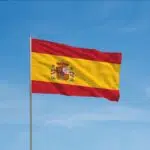New Year’s Day Substitute is celebrated on January 2 when New Year’s Day falls during the week or the following Monday if New Year’s Day falls on a weekend, and we are going to do the most obvious thing to do on a holiday — chill. Did you know that there was a time when the new year was March 15? Weird, right? New Zealand is one of the countries that are always first to celebrate New Year’s Day as it’s 12 hours ahead of G.M.T. Day after New Year’s Day is a public holiday in New Zealand, where people and businesses take the day off.
History of New Year's Day Substitute
Up until the 16th century, New Year’s Day on January 1 was hardly a tradition, and different countries worldwide had their times when they celebrated the new year.
In ancient Babylon, the first recorded new year celebration took place in the year 2000 B.C. The Babylonians designed their calendar around the movement of the moon and sun. They celebrate their new year in the month of Nisan, the first new moon after the vernal equinox (mid-March in Gregorian calendar). Before the ancient Roman calendar reformation in Numa’s era, Romans followed the ten-month calendar thought to have been created by the first king of Rome, Romulus.
The month of March was the first on the calendar. As a result, the new year’s celebrations took place on March 1. Later on, January and February were introduced to the Roman calendar, but as the last two months. However, after some period, people began seeing them as the first two months of the year instead. By 153 B.C., Romans had started celebrating the new year on January 1.
After being named Consul and seeing the harmful influence of the Roman calendar on the state’s administration, Julius Caesar instituted fresh adjustments to the calendar. He adjusted the calendar to the movement of the sun and declared January to be the first month of the year. People in much of the Western world followed the calendar for the next 1,600 years, and many of them celebrated the new year on January 1.
During medieval times, the Church temporarily replaced the first day of the year with important religious days, such as the Feast of the Annunciation on March 25 and Jesus’ birthday on December 25. This practice ended in 1582, when Pope Gregory XIII introduced the Gregorian calendar, re-establishing January 1 as New Year’s Day.
New Year's Day Substitute timeline
Babylonians celebrate the Atiku festival — the first recorded New Year's celebration in history.
After January 1 becomes the day for the new consuls’ inauguration, people begin celebrating New Year's Day on the same day.
The church designates different important days in the Christian calendar as New Year's Day.
Pope Gregory XIII reinstates January 1 as New Year's Day.
New Year's Day Substitute FAQs
Is the day after New Year's Day a public holiday in New Zealand?
Yes, the Day after New Year’s Day is a public holiday in New Zealand, and businesses are expected to remain closed for the entire day.
What is the Day after New Year's Day called?
It is called precisely that — the Day after New Year’s Day. There is no other particular name for it.
What do New Zealanders do on the Day after New Year's Day?
Since it’s a no-work day, most New Zealanders use the day as part of their annual vacation where they travel to the countryside or abroad and go camping. Some people spend the time at home, generally relaxing.
New Year's Day Substitute Activities
Go camping
During this time, there are a lot of campsites available for people who want to spend some time in the great outdoors. Check out websites like booking.com and newzealand.com to find amazing camping spots for you and your friends or family. Remember to make your reservations early because this is one of the busiest camping seasons of the year.
Have a barbecue
Your front yard or backyard can be used for multiple purposes — it could be the location of your yearly B.B.Q. party the day following New Year's Day. Once you've learned how to handle the grill, throwing a barbecue party is simple. If you do, all that's left to do now is make the punch, ice, and games, as well as send out invitations. For people who have no prior experience with grilling, an online crash course is available.
Relax and chill
There's nothing wrong with spending the day relaxing from all the merriments of Christmas and New Year's Day. Put on your favorite baggy pants and sweatshirt, grab some cold drinks, snacks, and tune in to your favorite T.V. show.
5 Mind-blowing Facts About New Year's Day
The most popular resolution is exercising
The top New Year’s resolution is exercise, followed by eating healthier, saving money, and losing weight.
Most resolutions fail by February
By February, most people have either dropped or forgotten about their resolutions.
Sparkling wine is the drink of choice
About 360 million glasses of sparkling wine are consumed in the United States on New Year's Eve.
Ethiopia celebrates the new year on September 11
Ethiopia uses the Ethiopian calendar whose New Year’s Day is 1 Mäskäräm (September 11 in Gregorian calendar).
Russia celebrates New Year’s Day twice
They celebrate the new year on January 1 and January 14.
Why We Love New Year's Day Substitute
It’s a day to relax
Since it is a no-work day, the Day after New Year's Day is normally a chance for New Zealanders to unwind and spend time with family and friends. So relax and unwind for what might be the last time before the grind of work begins again.
It's a continuation of the New Year's Day celebration
Since the Day after New Year's Day is after New Year's Day, it is only natural to pick up from where the previous day's celebration ended.
It’s fun
What's more fun than the freedom to lay back or party, especially if it's going to be the last in a long while? Therefore, make sure you spend this day to the fullest.
New Year's Day Substitute dates
| Year | Date | Day |
|---|---|---|
| 2025 | January 2 | Thursday |
| 2026 | January 2 | Friday |
| 2027 | January 2 | Saturday |
| 2028 | January 2 | Sunday |
| 2029 | January 2 | Tuesday |


















